#Marjolijn de Jager
Explore tagged Tumblr posts
Text
Do you have any idea how many screams I’ve suppressed so as not to go mad, not to die like a dog?
— Darina Al-Joundi, The Day Nina Simone Stopped Singing, written with Mohamed Kacimi, transl by Marjolijn de Jager, (2008)
#Lebanese#Darina Al-Joundi#The Day Nina Simone Stopped Singing#Mohamed Kacimi#Marjolijn de Jager#(2008)
135 notes
·
View notes
Text

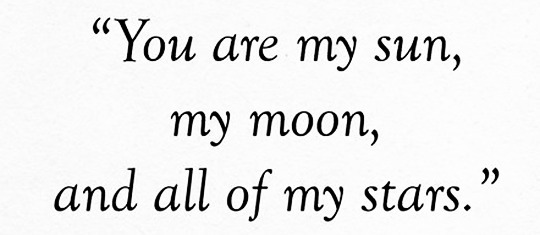


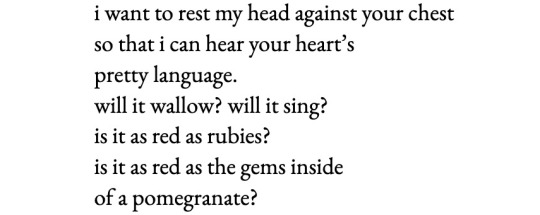


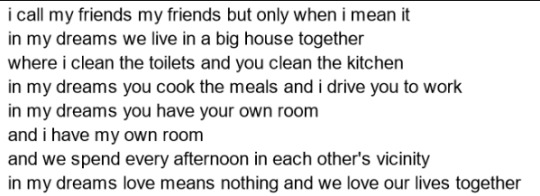

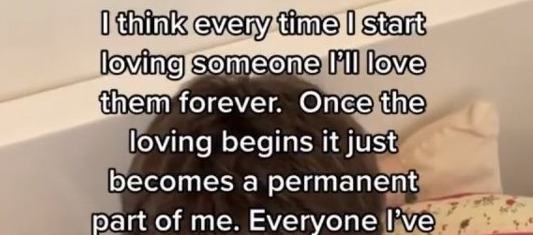

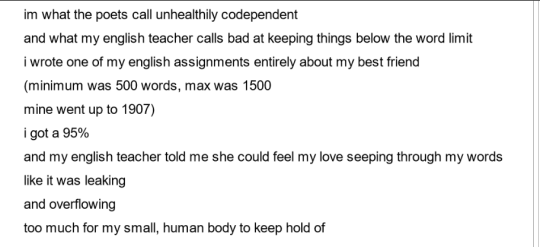
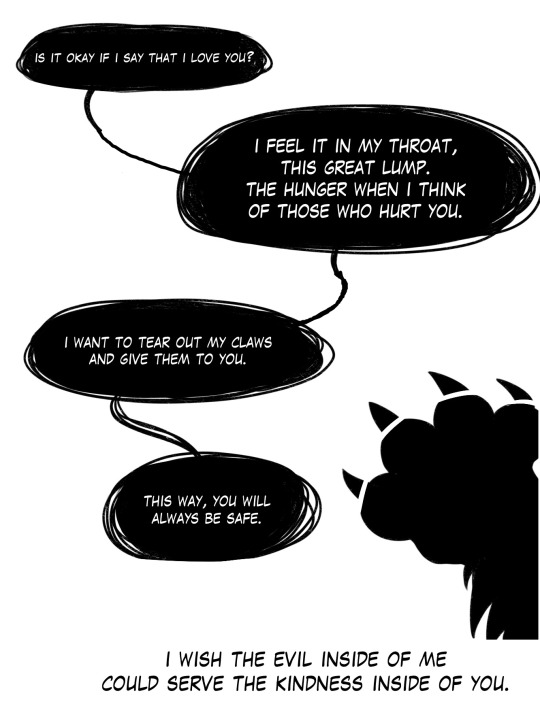
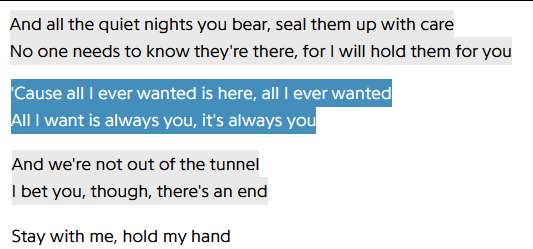
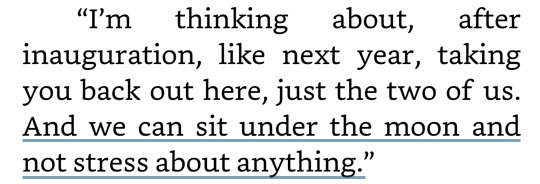



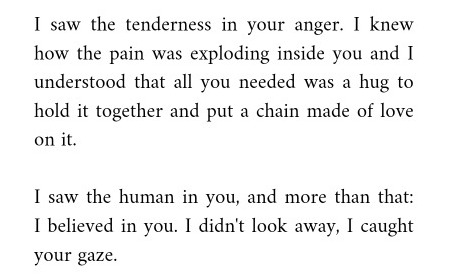
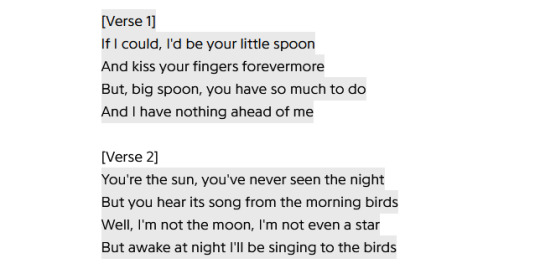
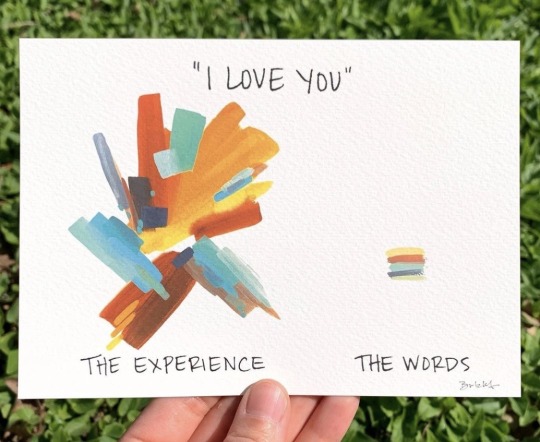

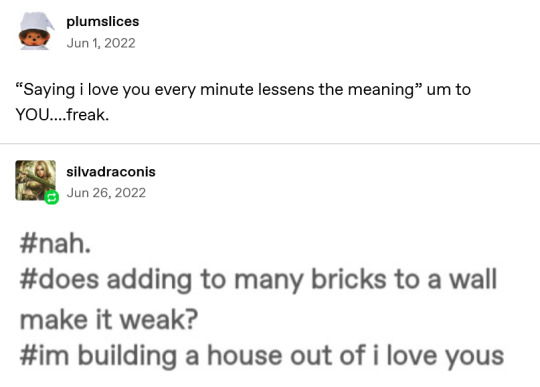


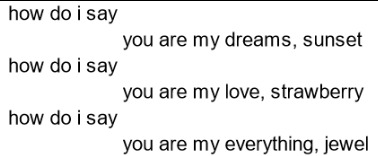
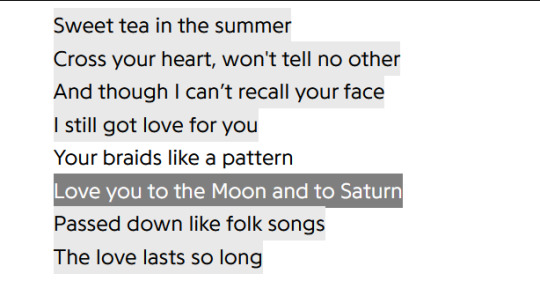
for my most beloved's birthday @caruliaa i love you so much <3
///
archery by neptune holub // you are my sun, my moon, and all my stars by e.e. cummings // post by @/jugn00 // humans are creatures of habit by @/isolatedphenomenon // prescription for lilies by serena crane // please dont by mxmtoon // reassurance by @/heartlessqueen // cupio, definition by neptune holub // while you're alive by jeff rosenstock // tiktok by emilymcsings // post by @/magneatio // what the poets call love by neptune holub // wolf & bunny, a love story by rusted-pipe-of-wisdom // i will by mitski // red, white, and royal blue by casey mcquiston // writing prompts for the broken-hearted by eden robinson // share your adress by ben platt // post by @/coffeepeople // poem by ruhlare // your best american girl by mitski // i love you by britchida // songs of love and war translated by marjolijn de jager // post by @/plumslices // meteor shower by cavetown // a self portrait in letters by anne sexton // how do i say i love you by neptune holub // seven by taylor swift
#SCHEDULED TO POST THE SECOND IT TURNS OCT 4TH YOUR TIME#so i'll prolly be asleep or in class or smthn :(#i have more gift but this is like a little snippet thing#didnt draw anything because art block has been kicking my ass but i have a lot of poetry i wanted to share#anyway. real tags now#no ID#flappy :3#web weave#web weaving
24 notes
·
View notes
Photo

1 note
·
View note
Text

from Songs of Love and War: Afghan Women's Poetry, tr. by Marjolijn De Jager
[Text ID: “In secret I burn, in secret I weep,”]
#excerpts#writings#literature#poetry#fragments#selections#words#quotes#poetry collection#lit#typography#poetry in translation#afghan poetry#burning#weeping#sadness#secret
2K notes
·
View notes
Text
Island Heart by Ida Faubert, translated from French by Danielle Legros Georges | Sub Press
General Sun, My Brother by Jacques Stephen Alexis, translated from French by Carrol F. Coates | CARAF Books, University of Virginia Press
Love, Anger, Madness by Marie Vieux-Chauvet, translated from French by Rose-Myriam Réjouis and Val Vinokur | Modern Library
Massacre River by René Philoctète, translated from French by Linda Coverdale | New Directions
Hadriana in All My Dreams by René Depestre, translated from French by Kaiama L. Glover | Akashic Books
Aunt Résia and the Spirits, and Other Stories by Yanick Lahens, translated from French by Elizabeth “Betty” Wilson | CARAF Books, University of Virginia Press
The Infamous Rosalie by Évelyne Trouillot, translated from French by Marjorie Attignol Salvodon | University of Nebraska Press
Wandering Memory by Jan J. Dominique, translated from French by Emma Donovan Page | CARAF Books, University of Virginia Press
The Mediterranean Wall by Louis-Philippe Dalembert, translated from French by Marjolijn de Jager | Schaffner Press
The Immortals by Makenzy Orcel, translated from French by Nathan H. Dize | SUNY Press
67 notes
·
View notes
Photo

Mahmoud Darwish (tr. Marjolijn De Jager)
13 notes
·
View notes
Link
From the Open Letter Books announcement:
Join Us to Celebrate the 2019 Best Translated Book Awards!
As part of this year's New York Rights Fair, the winners of the 2019 Best Translated Book Awards will be announced at the Jacob Javits Center at 5pm on Wednesday, May 29th. This will be immediately followed by a reception, and an afterparty at The Brooklyneer starting at 7pm. International Literature: Promoting and Finding Audiences The festivities kick off at 4:15 with a panel moderated byChad W. Post and featuring Lisa Lucas (National Book Foundation), Jennifer Croft (writer and translator), Michael Reynolds (Europa Editions), andNick Buzanski (Book Culture).Over the past decade, there has been a lot of focus on the "3% Problem" (less than 3% of all books published in America are translated into English) and on the production of more works in translation. But simply increasing the number of published works of international literature is not enough—for an interest in international literature to continue to expand among English readers, the industry needs to focus on developing larger audiences for these works. This panel will explore a variety of initiatives—from the new National Book Award for Translation, to the impact of the Man Booker International Prize, to the Booksellers without Borders program—to identify ways in which to get translated literature into the hands of more readers. BTBA Announcement
At 5pm, Patrick Smith will unveil the winners of this year's Best Translated Book Awards. Thanks to the support of the Amazon Literary Partnership, each of the winning authors and translators will receive $2,000.The winners will also be announced on The Millions, which is where you can find the list of ten fiction finalists, and the five poetry finalists. Speculation is running high, and we encourage you to chime in with your opinions on Twitter by using the hashtag #BTBA2019. Immediately following the announcement of the two winners, there will be a reception for everyone attending BookExpo/New York Rights Fair. Afterparty at The Brooklyneer
For those who aren't able to attend BookExpo/NYRF, there will be an informal afterparty starting at 7pm at The Brooklyneer (220 W. Houston). Come by and have a drink with some of the judges, a few publishers, and other enthusiasts of international literature. This is open to the public, and a great way to kick off your night! About the BTBA
The Best Translated Book Award was founded in 2007 (making this its twelfth iteration) to draw attention to the best works of translated literature that came out the following year. The award’s emphasis is on the quality of the book and translation, with the argument that you can’t have a great work of literature without both of these aspects working at a very high level.Starting with the 2009 award (all years given are for the year in which the winners are announced; the books are from the year previous), works of fiction and poetry were awarded separately. And beginning with the 2011 award, each winning author and translator received a cash prize thanks to the Amazon Literary Partnership program. Thanks to this program, we have given out $125,000 in prizes to international authors and their translators.
BTBA 2019 Fiction Finalists Congo Inc.: Bismarck’s Testament by In Koli Jean Bofane, translated from the French by Marjolijn de Jager (Democratic Republic of Congo, Indiana University Press) The Hospital by Ahmed Bouanani, translated from the French by Lara Vergnaud (Morocco, New Directions) Slave Old Man by Patrick Chamoiseau, translated from the French by Linda Coverdale (Martinique, New Press) Pretty Things by Virginie Despentes, translated from the French by Emma Ramadan, (France, Feminist Press) Moon Brow by Shahriar Mandanipour, translated from the Persian by Sara Khalili (Iran, Restless Books) Bricks and Mortar by Clemens Meyer, translated from the German by Katy Derbyshire (Germany, Fitzcarraldo Editions) Convenience Store Woman by Sayaka Murata, translated from the Japanese by Ginny Tapley Takemori (Japan, Grove) The Governesses by Anne Serre, translated from the French by Mark Hutchinson (France, New Directions) Öræfï by Ófeigur Sigurðsson, translated from the Icelandic by Lytton Smith (Iceland, Deep Vellum) Fox by Dubravka Ugresic, translated from the Croatian by Ellen Elias-Bursac and David Williams (Croatia, Open Letter) This year’s fiction jury is made up of: Pierce Alquist (BookRiot), Caitlin L. Baker (Island Books), Kasia Bartoszyńska (Monmouth College), Tara Cheesman (freelance book critic), George Carroll (litintranslation.com), Adam Hetherington (reader), Keaton Patterson (Brazos Bookstore), Sofia Samatar (writer), Ely Watson (A Room of One’s Own). BTBA 2019 Poetry Finalists The Future Has an Appointment with the Dawn by Tanella Boni, translated from the French by Todd Fredson (Cote D’Ivoire, University of Nebraska) Moss & Silver by Jure Detela, translated from the Slovenian by Raymond Miller and Tatjana Jamnik (Slovenia, Ugly Duckling) Of Death. Minimal Odes by Hilda Hilst, translated from the Portuguese by Laura Cesarco Eglin (Brazil, co-im-press) Autobiography of Death by Kim Hyesoon, translated from the Korean by Don Mee Choi (Korea, New Directions) Negative Space by Luljeta Lleshanaku, translated from the Albanian by Ani Gjika (Albania, New Directions) The poetry jury includes: Jarrod Annis (Greenlight Bookstore), Katrine Øgaard Jensen (EuropeNow), Tess Lewis (writer and translator), Aditi Machado (poet and translator), and Laura Marris (writer and translator). Chad W. Post | Open Letter Books
3 notes
·
View notes
Text
In secret I burn, in secret I weep.
— from Songs of Love and War: Afghan Women's Poetry, tr. by Marjolijn De Jager
1 note
·
View note
Text
the last post?
"You don't call yourself a writer because you have some free time and your heart is aching....Writing is a serious activity, a profession. Not a pastime." Simone de Beauvoir quoted by Claudine Monteil in The Beauvoir Sisters, English translation © 2004 by Marjolijn de Jager. The same is true of painting and acting. It should mean the end of this blog. Young Woman Drawing by Marie-Denise Villers, 1801. Met Museum. Image source: Wikipedia
“You don’t call yourself a writer because you have some free time and your heart is aching…. Writing is a serious activity, a profession. Not a pastime.” Simone de Beauvoir quoted by Claudine Monteil in The Beauvoir Sisters, English translation © 2004 by Marjolijn de Jager. The same is true of painting and acting. It should mean the end of this blog….. Young Woman Drawing by Marie-Denise…

View On WordPress
#Art#contrablog#culture#Facing the World#Gravity#heroines#Marie-Denise Villers#paintings#World&039;s End Garden
0 notes
Text
:::Mahmoud Darwish::: Under Siege
Here on the slopes of hills, facing the dusk and the cannon of time Close to the gardens of broken shadows, We do what prisoners do, And what the jobless do: We cultivate hope. * A country preparing for dawn. We grow less intelligent For we closely watch the hour of victory: No night in our night lit up by the shelling Our enemies are watchful and light the light for us In the darkness of cellars. * Here there is no "I". Here Adam remembers the dust of his clay. * On the verge of death, he says: I have no trace left to lose: Free I am so close to my liberty. My future lies in my own hand. Soon I shall penetrate my life, I shall be born free and parentless, And as my name I shall choose azure letters... * You who stand in the doorway, come in, Drink Arabic coffee with us And you will sense that you are men like us You who stand in the doorways of houses Come out of our morningtimes, We shall feel reassured to be Men like you! * When the planes disappear, the white, white doves Fly off and wash the cheeks of heaven With unbound wings taking radiance back again, taking possession Of the ether and of play. Higher, higher still, the white, white doves Fly off. Ah, if only the sky Were real [a man passing between two bombs said to me]. * Cypresses behind the soldiers, minarets protecting The sky from collapse. Behind the hedge of steel Soldiers pissunder the watchful eye of a tank And the autumnal day ends its golden wandering in A street as wide as a church after Sunday mass... * [To a killer] If you had contemplated the victims face And thought it through, you would have remembered your mother in the Gas chamber, you would have been freed from the reason for the rifle And you would have changed your mind: this is not the way to find ones identity again. * The siege is a waiting period Waiting on the tilted ladder in the middle of the storm. * Alone, we are alone as far down as the sediment Were it not for the visits of the rainbows. * We have brothers behind this expanse. Excellent brothers. They love us. They watch us and weep. Then, in secret, they tell each other: "Ah! if this siege had been declared..." They do not finish their sentence: "Dont abandon us, dont leave us." * Our losses: between two and eight martyrs each day. And ten wounded. And twenty homes. And fifty olive trees... Added to this the structural flaw that Will arrive at the poem, the play, and the unfinished canvas. * A woman told the cloud: cover my beloved For my clothing is drenched with his blood. * If you are not rain, my love Be tree Sated with fertility, be tree If you are not tree, my love Be stone Saturated with humidity, be stone If you are not stone, my love Be moon In the dream of the beloved woman, be moon [So spoke a woman to her son at his funeral] * Oh watchmen! Are you not weary Of lying in wait for the light in our salt And of the incandescence of the rose in our wound Are you not weary, oh watchmen? * A little of this absolute and blue infinity Would be enough To lighten the burden of these times And to cleanse the mire of this place. * It is up to the soul to come down from its mount And on its silken feet walk By my side, hand in hand, like two longtime Friends who share the ancient bread And the antique glass of wine May we walk this road together And then our days will take different directions: I, beyond nature, which in turn Will choose to squat on a high-up rock. * On my rubble the shadow grows green, And the wolf is dozing on the skin of my goat He dreams as I do, as the angel does That life is here...not over there. * In the state of siege, time becomes space Transfixed in its eternity In the state of siege, space becomes time That has missed its yesterday and its tomorrow. * The martyr encircles me every time I live a new day And questions me: Where were you? Take every word You have given me back to the dictionaries And relieve the sleepers from the echos buzz. * The martyr enlightens me: beyond the expanse I did not look For the virgins of immortality for I love life On earth, amid fig trees and pines, But I cannot reach it, and then, too, I took aim at it With my last possession: the blood in the body of azure. * The martyr warned me: Do not believe their ululations Believe my father when, weeping, he looks at my photograph How did we trade roles, my son, how did you precede me. I first, I the first one! * The martyr encircles me: my place and my crude furniture are all that I have changed. I put a gazelle on my bed, And a crescent of moon on my finger To appease my sorrow. * The siege will last in order to convince us we must choose an enslavement that does no harm, in fullest liberty! * Resisting means assuring oneself of the hearts health, The health of the testicles and of your tenacious disease: The disease of hope. * And in what remains of the dawn, I walk toward my exterior And in what remains of the night, I hear the sound of footsteps inside me. * Greetings to the one who shares with me an attention to The drunkenness of light, the light of the butterfly, in the Blackness of this tunnel! * Greetings to the one who shares my glass with me In the denseness of a night outflanking the two spaces: Greetings to my apparition. * My friends are always preparing a farewell feast for me, A soothing grave in the shade of oak trees A marble epitaph of time And always I anticipate them at the funeral: Who then has died...who? * Writing is a puppy biting nothingness Writing wounds without a trace of blood. * Our cups of coffee. Birds green trees In the blue shade, the sun gambols from one wall To another like a gazelle The water in the clouds has the unlimited shape of what is left to us Of the sky. And other things of suspended memories Reveal that this morning is powerful and splendid, And that we are the guests of eternity. Translated by Marjolijn De Jager
3 notes
·
View notes
Text
Congo Inc. by In Koli Jean Bofane

(translated by Marjolijn De Jager)
This was the first book I’ve read from a series from the Indiana University Press called Global African Voices. 26 year old Isookanga, from the Ekonda clan, who are unkindly and demeaningly referred to as ‘Pygmies’, leaves his family deep in the forest of the Congo to explore the world of commerce and technology in Kinshasa. Initially he struggles to make any money or friends, and settles amongst a group of street children; due to his small stature he is mistaken as a child. Though Isookanga, his enterprise of selling bottled water, and other themes of globalisation exploiting the Congolese, provide the backbone to the novel, the real interest is in the street children, or shégués who have experienced military raids on their rural villages, domestic abuse, and prostitution. After one of them is killed on the streets, the awful character of the entirely unreformed warlord Kiro Bizimungu is introduced. He is of Rwandan Tutsi origin, one who fled the genocide towards the Democratic Republic of Congo (a few were left alive to tell the story of the horrors) and then began to hunt down Hutus who fled from post-genocide Tutsi-dominated Rwanda into the Congo which in turn led to genocide-style activities similar to which they had been subjected themselves. In scenes that flashback to those times Bofane’s writing is some of the most horrific and powerful that I have ever read. Unsurprisingly, the main storyline of the novel becomes of much less interest than that of the fate of Bizimungu. This is a very impressive work on the heart of contemporary Africa; vivid in its description, in some places disturbingly so, and giving a fascinating insight into life in Kinshasa, aswell as the country's recent history, and what the population has had to deal with.
0 notes
Text
You never know, she might have been able to resuscitate you. She could have played Jesus to your Lazarus.
— Darina Al-Joundi, The Day Nina Simone Stopped Singing, written with Mohamed Kacimi, transl by Marjolijn de Jager, (2008)
#Lebanese#Darina Al-Joundi#The Day Nina Simone Stopped Singing#Mohamed Kacimi#Marjolijn de Jager#(2008)#Jesus#Jesus of Nazareth#Lazarus
22 notes
·
View notes
Photo

Misty Morrison
Oblivion
Pittsburgh Center for the Arts
Friday, March 31, 2017 to Sunday, July 23, 2017 Opening reception: March 31, 6-8pm ___________________________________________________
Statement:
“Is it not true that a given individual– an individual subjected like all others to event and history– has particular and specific remembrances as well as things forgotten? I shall risk setting up a formula: tell me what you forget and I will tell you who you are.”
Oblivion -Marc Augé
The paintings which comprise “Oblivion” grew out of a previous form, entitled “If You See Something...” They were then, and are still now, a meditation on witnessed experience, interpersonal relationships (specifically on how they form us individually as well as collectively), and the burden of responsibility we (again, individually and collectively) share when we observe violence, maltreatment, or neglect. They are, additionally, a visual manifestation of an abusive relationship where the abuse wasn’t seen– as well as an attempt to relate to the experience of abuse, thereby forming my own subjective understanding of it.
It was a group of works that I knew I would return to after the space of time had grown between the experience, the creation of the work, and the present. “Oblivion” is the form of that return– a moment to consider what remains after time has begun its own process of curation– where what is forgotten and what is remembered are of near equal significance to what is experienced in the present.
"Our practical life, our everyday life, individual and collective, both private and public, is concerned with these forms of oblivion. First we shall mention them by sticking to the purely descriptive level so that, in the end, we can ask ourselves the following question: from the composite of these reflections, which have greater bearing on the use of time than on time as such—from these indirect and pragmatic reflections, could we draw something resembling wisdom, an art of living, even a morality? The answer, if we find it, will have every chance of telling us something—not about those who will have asked the question (the "others”), even if through an intermediary, but about those who will have attempted to answer it: ourselves.“
Oblivion -Marc Augé
This group of paintings is one part of an on-going body of work that explores interpersonal relationships and the way they inform subjective identity- the formation of the subject- individually and collectively.
Augé , Marc. Oblivion. Trans: Marjolijn de Jager. University of Minnesota Press, 2004. ___________________________________________________
Source: https://center.pfpca.org/exhibitions/misty-morrison
0 notes
Text

from Songs of Love and War: Afghan Women's Poetry, tr. by Marjolijn De Jager
[Text ID: “My beloved, I have nothing to offer you, / Except the dwelling in my heart’s heart that I build for you.”]
#excerpts#writings#literature#poetry#fragments#selections#words#quotes#poetry collection#lit#typography#poetry in translation#afghan poetry#love#heart
3K notes
·
View notes
Text
At dusk I would often visit the ruins of the Château de Beaufort with my father. He insisted that the place was haunted by a knight looking for his mistress, who was dressed in a voluminous blue gown. I believed him so completely that I could hear the lovers kiss in the dark.
— Darina Al-Joundi, The Day Nina Simone Stopped Singing, written with Mohamed Kacimi, transl by Marjolijn de Jager, (2008)
#Lebanese#Darina Al-Joundi#The Day Nina Simone Stopped Singing#Mohamed Kacimi#Marjolijn de Jager#(2008)#Childhood Reveries
18 notes
·
View notes
Text
To Alya, to death and love.
— Darina Al-Joundi, The Day Nina Simone Stopped Singing, written with Mohamed Kacimi, transl by Marjolijn de Jager, (2008)
#Lebanese#Darina Al-Joundi#The Day Nina Simone Stopped Singing#Mohamed Kacimi#Marjolijn de Jager#(2008)
9 notes
·
View notes